Vitamin K: Unveiling the Essential Nutrient for Blood Clotting and Bone Health
Blood clotting and bone health are vital aspects of our overall well-being. Behind the scenes of these essential processes lies a remarkable nutrient known as vitamin K. In this blog post, we will delve into the world of vitamin K, exploring its role in the body and shedding light on its significance for our health.
What is Vitamin K?
Vitamin K is a fat-soluble vitamin that exists in two primary forms: vitamin K1, also known as phylloquinone, and vitamin K2, or menaquinones. While vitamin K1 is predominantly found in plant-based sources, such as leafy greens (kale, spinach) and broccoli, vitamin K2 is present in animal-based foods and fermented products like meat, cheese, and natto. Additionally, our gut bacteria also contribute to vitamin K synthesis.
The Role of Vitamin K in the Body
One of the primary functions of vitamin K is its crucial role in blood clotting. When a wound occurs, vitamin K activates certain proteins that enable blood to clot effectively, preventing excessive bleeding. Beyond clotting, vitamin K also plays a vital role in maintaining bone health. It helps regulate calcium levels and supports the production of proteins that contribute to bone strength and density. Emerging research suggests that vitamin K may also have cardiovascular benefits and play a role in cell growth regulation.
In addition to its crucial roles in blood clotting and bone health, vitamin K offers several other benefits to the body.
The Benefits of Vitamin K
In addition to its crucial roles in blood clotting and bone health, vitamin K offers several other benefits to the body.
Let's explore some of these potential advantages:
Cardiovascular Health: Emerging research suggests that vitamin K may play a role in promoting cardiovascular health. Some studies have found an association between higher vitamin K intake and a reduced risk of cardiovascular disease. Vitamin K's involvement in calcium regulation and its potential to prevent arterial calcification may contribute to its cardioprotective effects.
Brain Health: Preliminary evidence suggests that vitamin K may have a role in brain health and cognitive function. Vitamin K-dependent proteins are found in the brain, and studies have indicated a potential link between vitamin K deficiency and an increased risk of cognitive decline and neurodegenerative diseases. Further research is needed to fully understand the impact of vitamin K on brain health.
Anti-Inflammatory Effects: Vitamin K exhibits anti-inflammatory properties, which may help in managing inflammation-related conditions. Some studies have shown that vitamin K can modulate inflammatory markers and reduce inflammatory responses in the body. These effects may have implications for various inflammatory diseases and conditions.
Skin Health: Vitamin K is believed to have benefits for skin health. It may help improve the appearance of skin by reducing the visibility of dark circles under the eyes and promoting wound healing. Topical formulations containing vitamin K are sometimes used to address skin concerns, although more research is needed to fully understand its mechanisms and efficacy.
To ensure an adequate intake of vitamin K, it is essential to incorporate a variety of vitamin K-rich foods into your diet.
Herbs: Certain herbs contain significant amounts of vitamin K. Incorporate parsley, basil, cilantro, and sage into your cooking and salads to boost your vitamin K intake.
Green Vegetables: Other green vegetables like asparagus, green beans, and green peas contain moderate amounts of vitamin K. Including a variety of these vegetables in your meals can contribute to your vitamin K needs.
Vitamin K deficiency is relatively rare but can have significant consequences. Causes of deficiency can include certain medical conditions, malabsorption issues, prolonged antibiotic use, or insufficient dietary intake. A deficiency in vitamin K may increase the risk of bleeding and bruising, as well as contribute to weakened bone health.
Vitamin K Supplements
In some cases, vitamin K supplementation may be necessary or recommended, especially for individuals with certain medical conditions or those who cannot meet their requirements through dietary sources alone.
However, it is important to consult a healthcare professional before starting any supplementation to determine the appropriate dosage and ensure it aligns with your individual needs.
Conclusion
Vitamin K is an often-underappreciated nutrient with remarkable benefits for blood clotting, bone health, and potentially other aspects of our well-being. By incorporating vitamin K-rich foods into our diet and maintaining a balanced approach to nutrition, we can support our body's natural processes and promote optimal health. Remember, it is always wise to consult with a healthcare professional for personalized advice and to ensure your dietary choices align with your specific needs.
Brain Health: Preliminary evidence suggests that vitamin K may have a role in brain health and cognitive function. Vitamin K-dependent proteins are found in the brain, and studies have indicated a potential link between vitamin K deficiency and an increased risk of cognitive decline and neurodegenerative diseases. Further research is needed to fully understand the impact of vitamin K on brain health.
Anti-Inflammatory Effects: Vitamin K exhibits anti-inflammatory properties, which may help in managing inflammation-related conditions. Some studies have shown that vitamin K can modulate inflammatory markers and reduce inflammatory responses in the body. These effects may have implications for various inflammatory diseases and conditions.
Skin Health: Vitamin K is believed to have benefits for skin health. It may help improve the appearance of skin by reducing the visibility of dark circles under the eyes and promoting wound healing. Topical formulations containing vitamin K are sometimes used to address skin concerns, although more research is needed to fully understand its mechanisms and efficacy.
Food Sources of Vitamin K
To ensure an adequate intake of vitamin K, it is essential to incorporate a variety of vitamin K-rich foods into your diet.
Here are some examples of vitamin K-rich foods:
Leafy Greens: Leafy green vegetables are excellent sources of vitamin K1. Include spinach, kale, Swiss chard, collard greens, and mustard greens in your diet. Aim to consume a variety of these greens to maximize your vitamin K intake.
Cruciferous Vegetables: Vegetables from the cruciferous family, such as broccoli, Brussels sprouts, and cabbage, are also good sources of vitamin K1. These vegetables offer additional health benefits due to their high fiber and antioxidant content.
Cruciferous Vegetables: Vegetables from the cruciferous family, such as broccoli, Brussels sprouts, and cabbage, are also good sources of vitamin K1. These vegetables offer additional health benefits due to their high fiber and antioxidant content.
Herbs: Certain herbs contain significant amounts of vitamin K. Incorporate parsley, basil, cilantro, and sage into your cooking and salads to boost your vitamin K intake.
Green Vegetables: Other green vegetables like asparagus, green beans, and green peas contain moderate amounts of vitamin K. Including a variety of these vegetables in your meals can contribute to your vitamin K needs.
Fermented Foods: Some fermented foods, such as natto (fermented soybeans), contain vitamin K2, specifically a subtype called menaquinone-7 (MK-7). Natto is a traditional Japanese dish that is an acquired taste for some, but it is a potent source of vitamin K2.
Meat and Animal Products: Animal-based foods like liver, eggs, and dairy products contain small amounts of vitamin K2. While these sources may not provide as much vitamin K as plant-based sources, they can still contribute to your overall intake.
Plant Oils: Certain plant oils are rich in vitamin K1. Opt for oils like soybean oil, canola oil, and olive oil to add vitamin K to your meals.
Fortified Foods: Some food products, such as cereals, plant-based milk alternatives, and nutritional bars, are fortified with vitamin K. Check the labels to identify fortified options.
Meat and Animal Products: Animal-based foods like liver, eggs, and dairy products contain small amounts of vitamin K2. While these sources may not provide as much vitamin K as plant-based sources, they can still contribute to your overall intake.
Plant Oils: Certain plant oils are rich in vitamin K1. Opt for oils like soybean oil, canola oil, and olive oil to add vitamin K to your meals.
Fortified Foods: Some food products, such as cereals, plant-based milk alternatives, and nutritional bars, are fortified with vitamin K. Check the labels to identify fortified options.
Vitamin K Deficiency
Vitamin K deficiency is relatively rare but can have significant consequences. Causes of deficiency can include certain medical conditions, malabsorption issues, prolonged antibiotic use, or insufficient dietary intake. A deficiency in vitamin K may increase the risk of bleeding and bruising, as well as contribute to weakened bone health.
If you suspect a deficiency, it is crucial to consult a healthcare professional for proper diagnosis and guidance.
Vitamin K Supplements
In some cases, vitamin K supplementation may be necessary or recommended, especially for individuals with certain medical conditions or those who cannot meet their requirements through dietary sources alone.
Conclusion
Vitamin K is an often-underappreciated nutrient with remarkable benefits for blood clotting, bone health, and potentially other aspects of our well-being. By incorporating vitamin K-rich foods into our diet and maintaining a balanced approach to nutrition, we can support our body's natural processes and promote optimal health. Remember, it is always wise to consult with a healthcare professional for personalized advice and to ensure your dietary choices align with your specific needs.
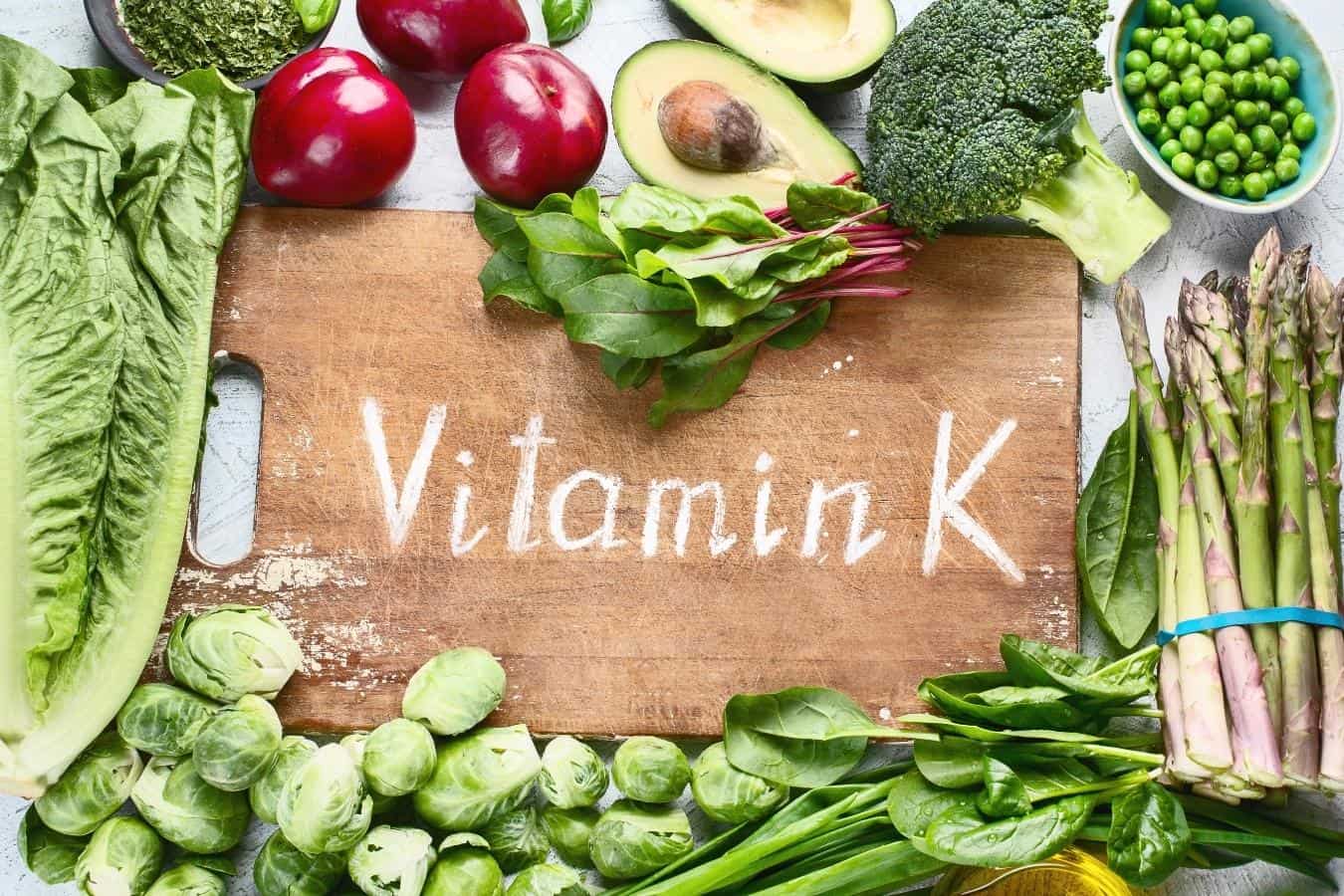
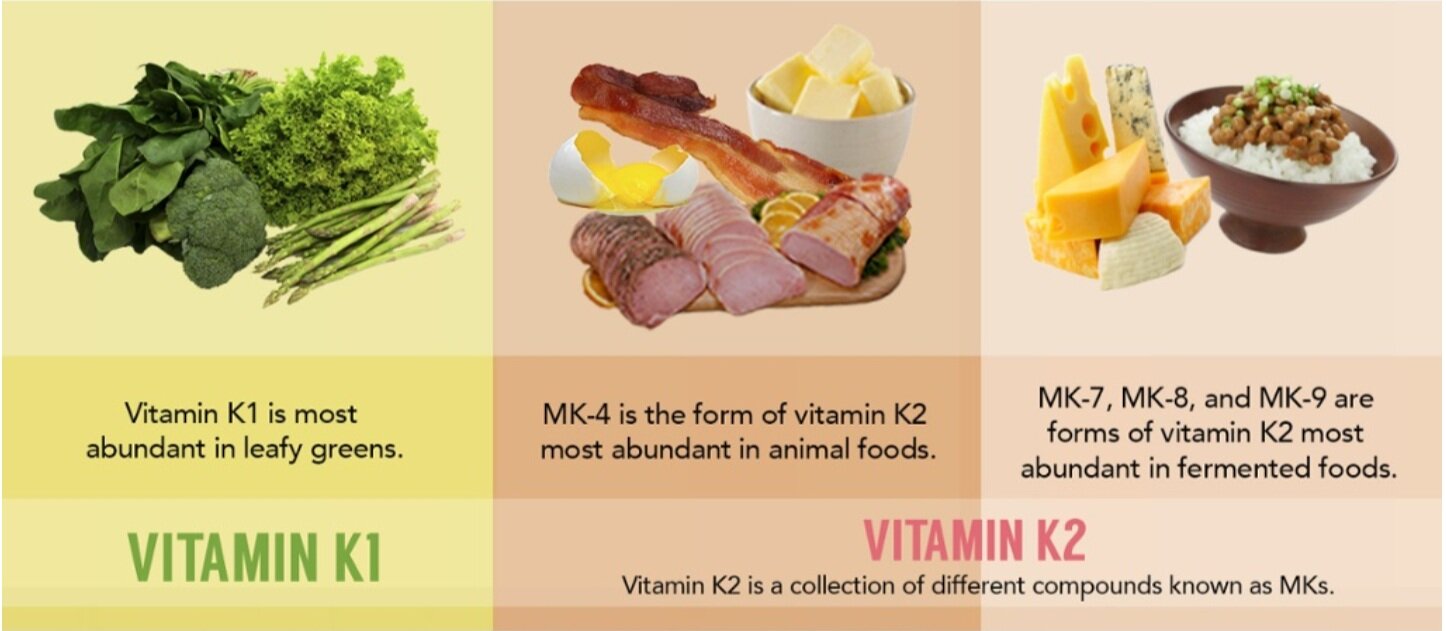
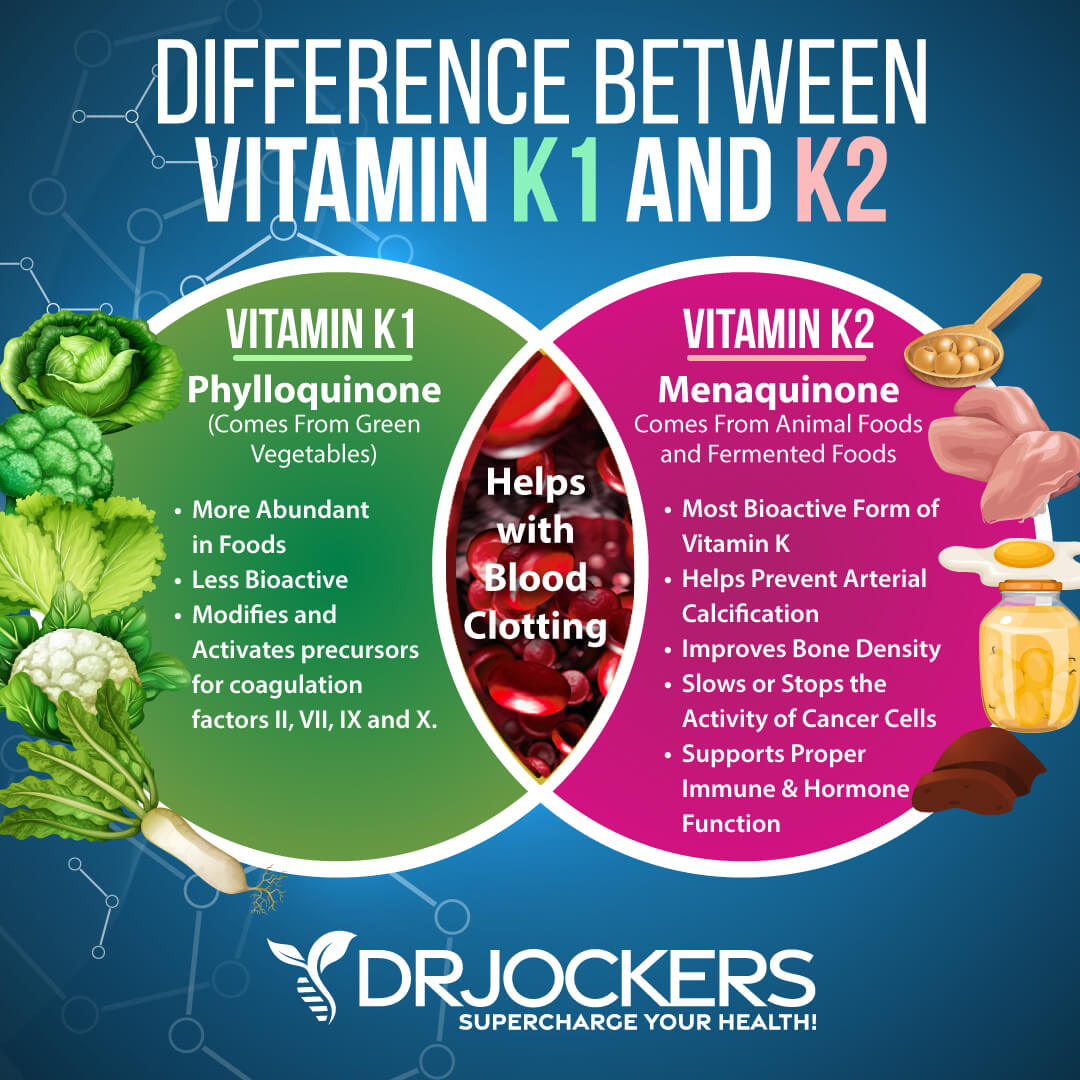
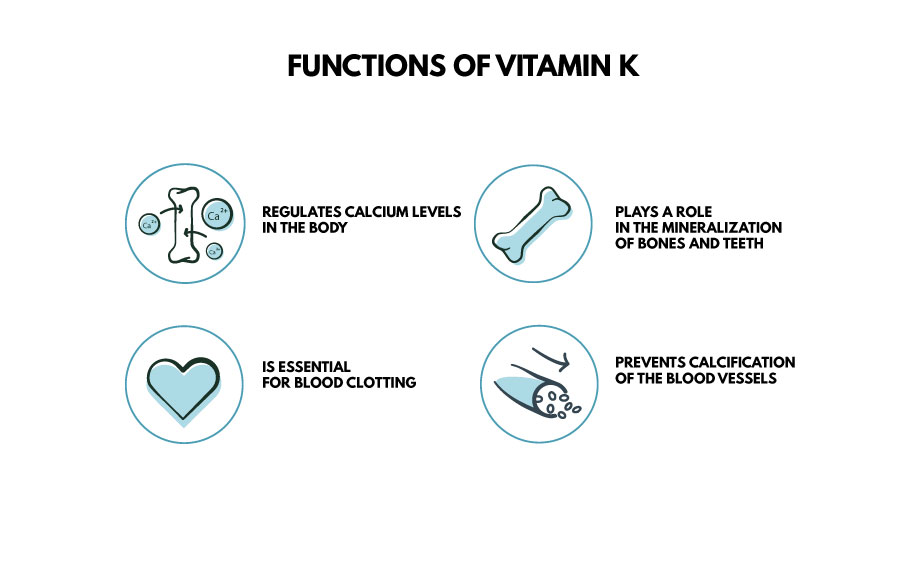
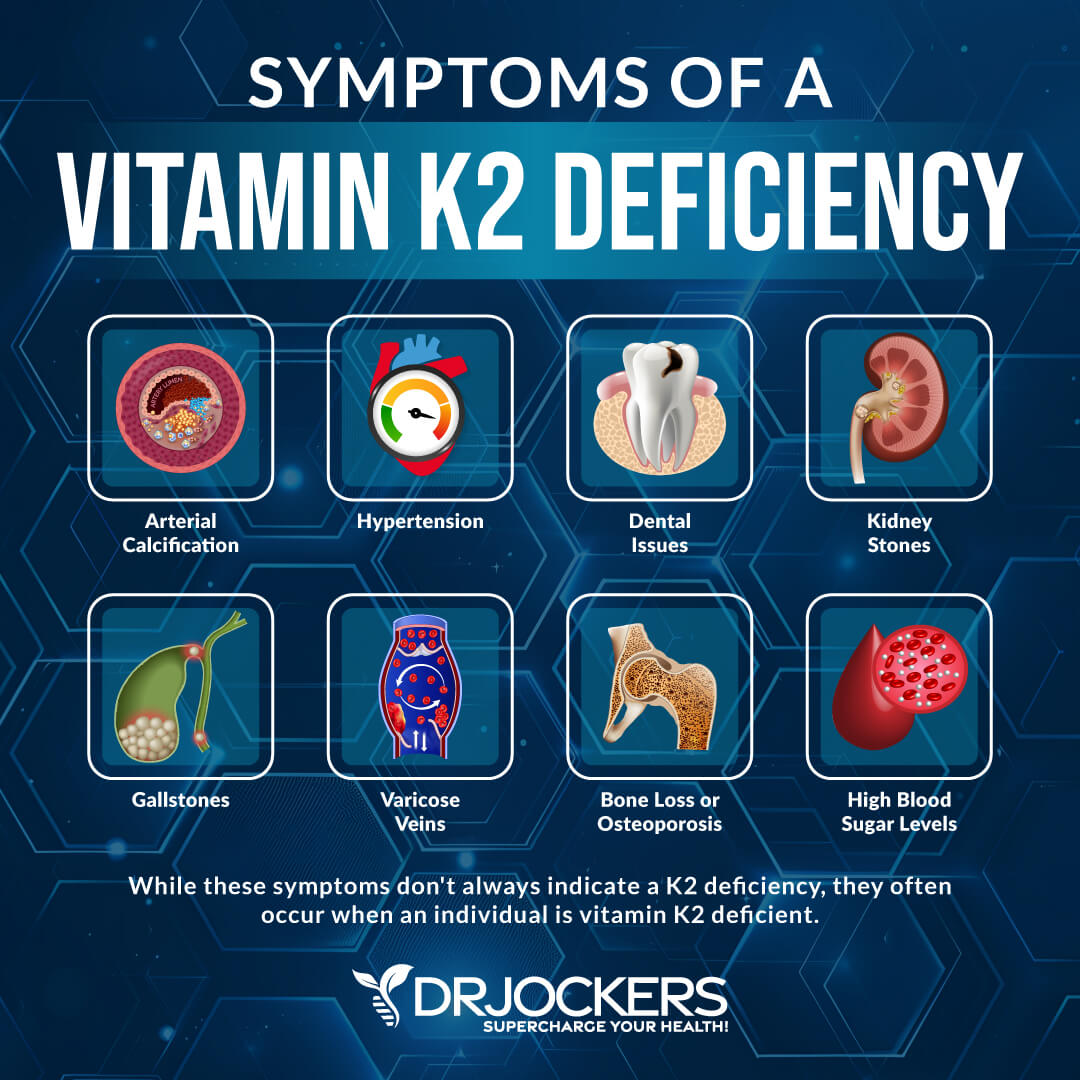


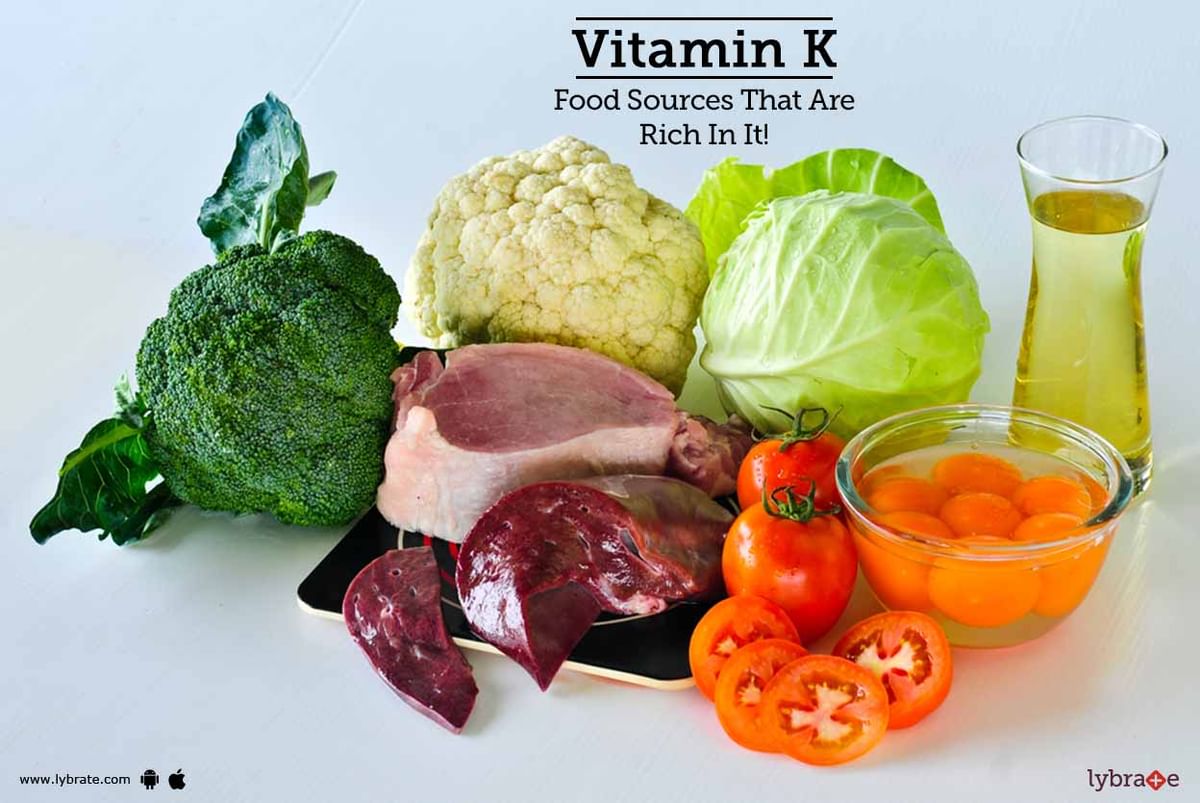

:max_bytes(150000):strip_icc()/foods-high-in-vitamin-k-5114127-FINAL-2c0783a2c2c643988571c6010f352ac7.png)
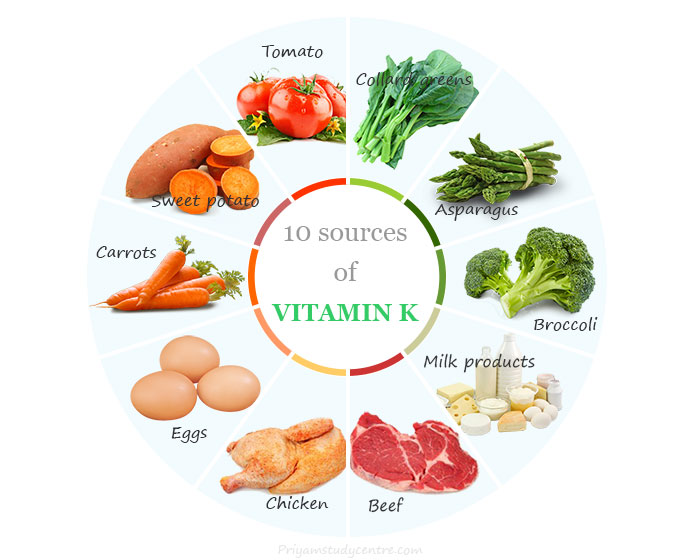


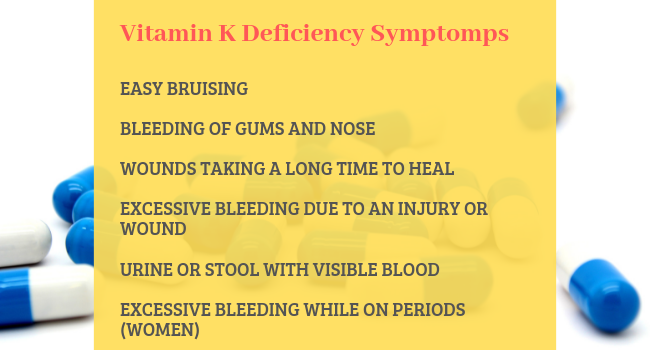
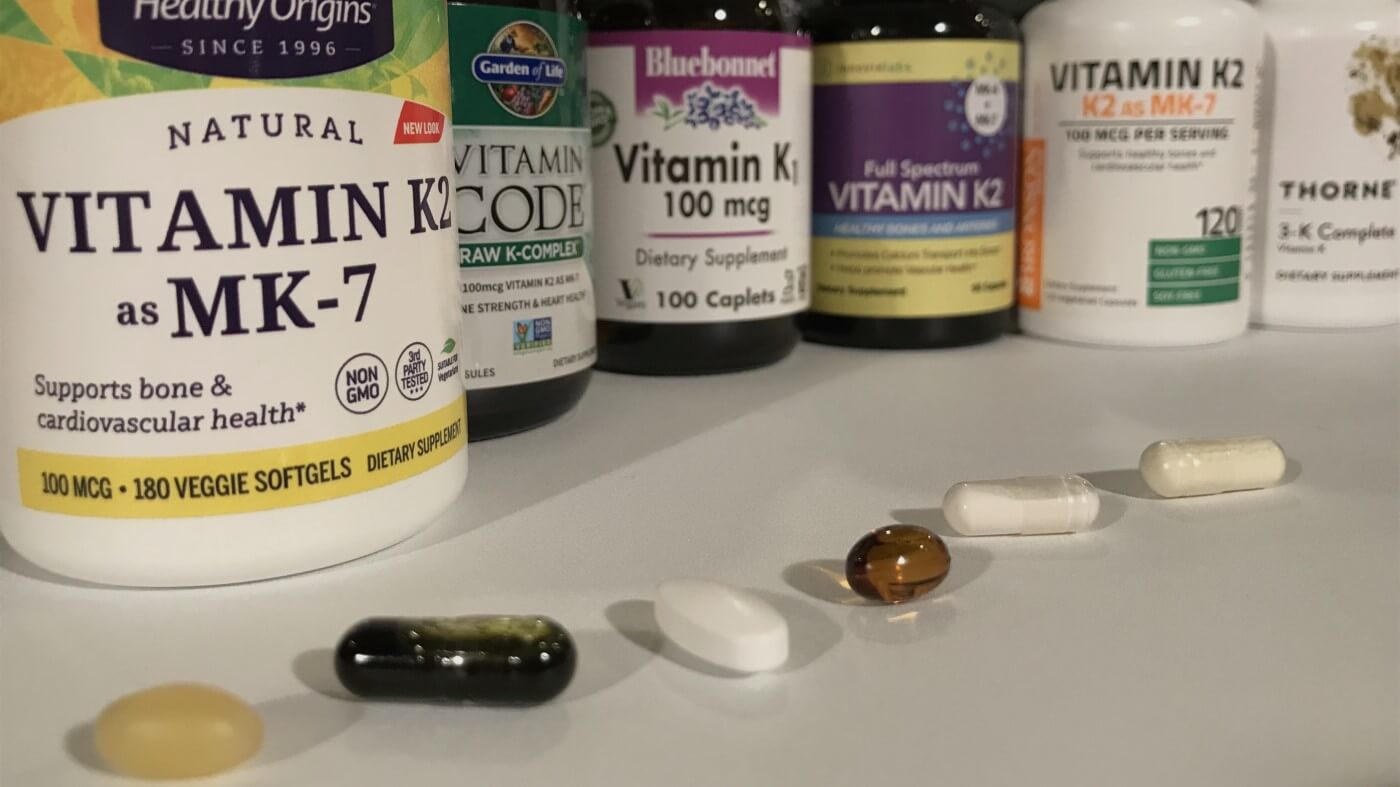


Comments
Post a Comment